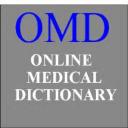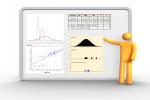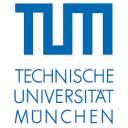MOST POPULAR
The aim of the GLOBOCAN project (developed by IARC) is to provide contemporary estimates of the incidence of, mortality, prevalence and disability-adjusted life years (DALYs) from major type of cancers, at national level, for 184 countries of the world. The GLOBOCAN estimates are presented separately for each sex and, for incidence and mortality data, for ten age groups. 1-, 3- and 5-year prevalence data are available for the adult population only (ages 15 and over). DALYs, life years lost lost due to premature mortality (YLLs) and years lived with disability (YLDs) are available for all ages only. Registration not required.
Click here for more informationsThis website provides a variety of online calculators, such as math and physics, financial, statistics, engineering and conversion calculators Registration not required.
Click here for more informations
Add to my favorites
Remove from my favorites
Category: Statistics miscellanea, Statistical distribution
RANDOM.ORG offers true random numbers to anyone on the Internet. The randomness comes from atmospheric noise, which for many purposes is better than the pseudo-random number algorithms typically used in computer programs. Registration not required.
Click here for more informationsThe HIV databases contain data on HIV genetic sequences, immunological epitopes, drug resistance-associated mutations, and vaccine trials. Registration not required.
Click here for more informationsGoogle Scholar allows users to search for digital or physical copies of articles, whether online or in libraries Google Scholar is relatively quick and easy to use. “Scholarly” searches will appear using the references from “’full-text journal articles, technical reports, preprints, theses, books, and other documents, including selected Web pages that are deemed to be “scholarly.’” Because most of Google Scholar's search results link directly to commercial journal articles, a majority of the time users will only be able to access a brief summary of the articles topics, as well as small amounts of important information regarding the article, and possibly have to pay a fee to access the entire article. Google Scholar is as easy to use as with the regular Google web search, especially with the helpfulness of the "advanced search" option, which can automatically narrow search results to a specific journal or article. The most relevant results for the searched keywords will be listed first, in order of the author's ranking, the number of references that are linked to it and their relevance to other scholarly literature, and the ranking of the publication that the journal appears in. Using its "group of" feature, it shows the available links to journal articles. In the 2005 version, this feature provided a link to both subscription-access versions of an article and to free full-text versions of articles; for most of 2006, it provided links to only the publishers' versions. Since December 2006, it has provided links to both published versions and major open access repositories, but still does not cover those posted on individual faculty web pages;[citation needed] access to such self-archived non-subscription versions is now provided by a link to Google, where one can find such open access articles. Through its "cited by" feature, Google Scholar provides access to abstracts of articles that have cited the article being viewed. It is this feature in particular that provides the citation indexing previously only found in Scopus and Web of Knowledge. Through its "Related articles" feature, Google Scholar presents a list of closely related articles, ranked primarily by how similar these articles are to the original result, but also taking into account the relevance of each paper. Registration not required.
Click here for more informationsDescription not available. Registration not required.
Click here for more informationsImageJ from NIH is the most diffused public domain Java image processing program suitable for several scientific applications. Registration not required.
Click here for more informationsGalaxy is an open source, web-based platform for data intensive biomedical research whose purpose is to make complex analysis more accessible. It is a useful tool for bioinformaticians and DNA sequencers. Galaxy provides a point-and-click web interface alternative to the bioinformatics command line, thus allowing researchers to easily create, run, and troubleshoot analytical pipelines (see Perkel JM, The Scientist 08/2016, p 57). Registration required.
Click here for more informationsThe Nucleotide database (NCBI) is a collection of sequences from several sources, including GenBank, RefSeq, TPA and PDB. Genome, gene and transcript sequence data provide the foundation for biomedical research and discovery. Registration not required.
Click here for more informationsThe A.D.A.M. Medical Encyclopedia includes over 4,000 articles about diseases, tests, symptoms, injuries, and surgeries. It also contains an extensive library of medical photographs and illustrations. Registration not required.
Click here for more informationsAddgene is a non-profit plasmid repository dedicated to helping academic scientists around the world share high-quality plasmids. Registration not required.
Click here for more informationsOnline Statistics, an interactive multimedia course of study ideated by David Lnae of Rice University, is a resource for learning and teaching introductory statistics. It contains material presented in textbook format and as video presentations. This resource features interactive demonstrations and simulations, case studies, and an analysis lab. Registration not required.
Click here for more informationsThe Mouse Tumor Biology (MTB) Database supports the use of the mouse as a model system of hereditary cancer providing online access to a variety of information on tumor models, genetic factors, tumor pathology, etc. Registration not required.
Click here for more informations
Add to my favorites
Remove from my favorites
I-TASSER server is a web application for protein structure and function predictions. Models are built based on multiple-threading alignments by LOMETS and iterative TASSER simulations. I-TASSER (as 'Zhang-Server') was ranked as the No 1 server in recent CASP7 and CASP8 experiments. The server is in active development with the goal to provide accurate structural and function predictions using state-of-the-art algorithms. References: Ambrish Roy, Alper Kucukural, Yang Zhang. I-TASSER: a unified platform for automated protein structure and function prediction. Nature Protocols, vol 5, 725-738 (2010). Registration not required.
Click here for more informations
Add to my favorites
Remove from my favorites
a global community where researchers connect
Category: Biomedical communities
ResearcherID provides a solution to the author ambiguity problem within the scholarly research community. Each member is assigned a unique identifier to enable researchers to manage their publication lists, track their times cited counts and h-index, identify potential collaborators and avoid author misidentification. In addition, your ResearcherID information integrates with the Web of Science and is ORCID compliant, allowing you to claim and showcase your publications from a single one account. Search the registry to find collaborators, review publication lists and explore how research is used around the world! Registration required.
Click here for more informationsThe ProteomeTools project is a joint effort of the Technical University of Munich (TUM), JPT Peptide Technologies, SAP SE and Thermo Fisher Scientific. It is dedicated to translating the human proteome into molecular and digital tools for drug discovery, personalized medicine and life science research. Over the course of the project, ~1.4 million synthetic peptides covering essentially all human gene products including important post translational modifications will be synthesized and analyzed using multimodal LC-MS/MS. We welcome participation to the project by the scientific community by e.g. suggesting sets of peptides to synthesize, offering measurements using other types of LC-MS/MS or developing applications and data analysis tools. Registration not required.
Click here for more informations
Add to my favorites
Remove from my favorites
Category: Biomedical funding and jobs
Subcategories: Jobs , fellowships
The site lists positions offered at Universities, Academies, Colleges, Faculties, Schools, Academic Departments, Institutes and Research Centers. It is possible to post a job request. The list of offered positions is free, posting a job and premium adverts require payment. Registration not required.
Click here for more informations
Add to my favorites
Remove from my favorites
connecting research and researchers
Category: Biomedical communities
As researchers and scholars, you face the ongoing challenge of distinguishing your research activities from those of others with similar names. You need to be able to easily and uniquely attach your identity to research objects such as datasets, equipment, articles, media stories, citations, experiments, patents, and notebooks. As you collaborate across disciplines, institutions and borders, you must interact with an increasing number and diversity of research information systems. Entering data over and over again can be time-consuming, and often frustrating. ORCID is an open, non-profit, community-driven effort to create and maintain a registry of unique researcher identifiers and a transparent method of linking research activities and outputs to these identifiers. ORCID is unique in its ability to reach across disciplines, research sectors and national boundaries. It is a hub that connects researchers and research through the embedding of ORCID identifiers in key workflows, such as research profile maintenance, manuscript submissions, grant applications, and patent applications. ORCID provides two core functions: (1) a registry to obtain a unique identifier and manage a record of activities, and (2) APIs that support system-to-system communication and authentication. ORCID makes its code available under an open source license, and will post an annual public data file under a CC0 waiver for free download. The ORCID Registry is available free of charge to individuals, who may obtain an ORCID identifier, manage their record of activities, and search for others in the Registry. Organizations may become members to link their records to ORCID identifiers, to update ORCID records, to receive updates from ORCID, and to register their employees and students for ORCID identifiers. ORCID records hold non-sensitive information such as name, email, organization and research activities. ORCID understands the fundamental need for individuals to control how their data are shared, and provides tools to manage data privacy. We take steps to protect your information, consistent with the principles set forth in our Privacy Policy, which are intended to comply with the Safe Harbor Principles issued by the U.S. Department of Commerce. Registration required.
Click here for more informationsThis web site offers free resources for students and researchers working with statistics. All the calculators and tools featured here have been designed with ease of use and clarity of presentation in mind. The web site has three main sections: statistical calculators, which deals mainly with hypothesis testing; p-value calculators, which allow you to derive p-values from Z, t, chi-square and Pearson (r); and descriptive statistics - averages, variance, and easy histogram and bar chart makers. Registration not required.
Click here for more informations
Add to my favorites
Remove from my favorites
free, online, open-source curated knowledgebase of biological pathways
Category: Pathways
Reactome allows: to analyse pathways, to visualize pathways















